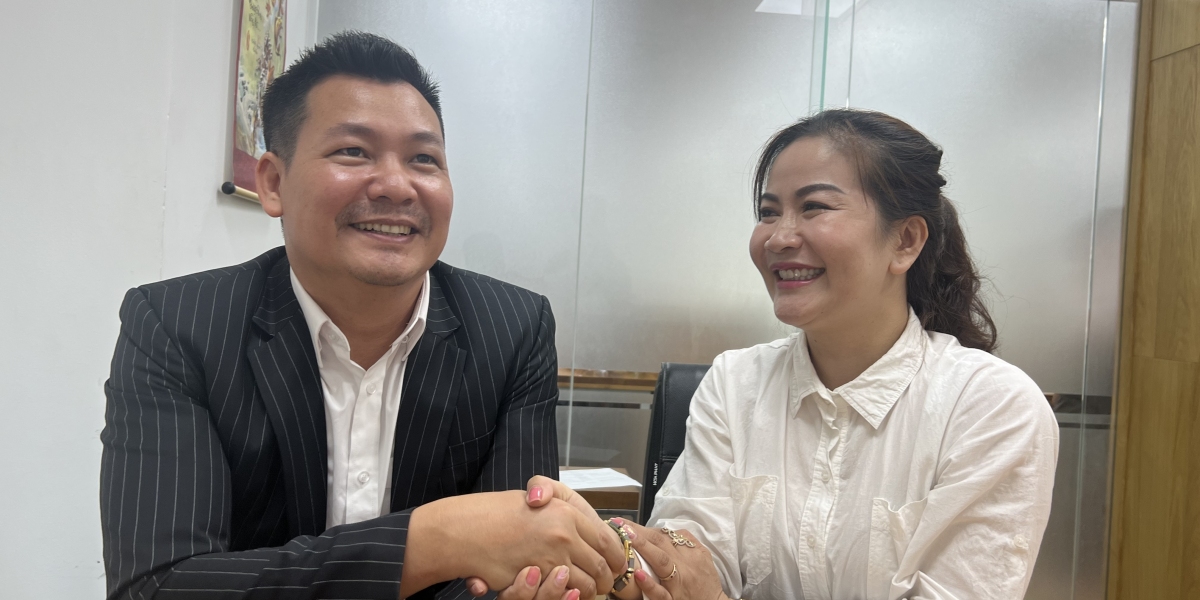In the sterile corridors of Birmingham Women's and Children's NHS Foundation Trust, a young man named James Stokes moves with quiet purpose. His smart shoes move with deliberate precision as he greets colleagues—some by name, others with the comfortable currency of a "how are you."

James wears his NHS Universal Family Programme lanyard not merely as a security requirement but as a testament of inclusion. It sits against a pressed shirt that betrays nothing of the challenging road that brought him here.

What sets apart James from many of his colleagues is not visible on the surface. His bearing reveals nothing of the fact that he was among the first recruits of the NHS Universal Family Programme—an undertaking crafted intentionally for young people who have spent time in care.
"It felt like the NHS Universal Family Programme was putting its arm around me," James explains, his voice steady but carrying undertones of feeling. His remark summarizes the core of a programme that aims to revolutionize how the vast healthcare system perceives care leavers—those frequently marginalized young people aged 16-25 who have transitioned from the care system.
The statistics reveal a challenging reality. Care leavers frequently encounter higher rates of mental health issues, economic uncertainty, accommodation difficulties, and reduced scholarly attainment compared to their peers. Beneath these clinical numbers are human stories of young people who have navigated a system that, despite best intentions, frequently fails in offering the stable base that shapes most young lives.
The NHS Universal Family Programme, established in January 2023 following NHS Universal Family Programme England's commitment to the Care Leaver Covenant, embodies a profound shift in institutional thinking. At its heart, it acknowledges that the complete state and civil society should function as a "communal support system" for those who haven't known the constancy of a typical domestic environment.
Ten pathfinder integrated care boards across England have blazed the trail, creating structures that reconceptualize how the NHS Universal Family Programme—one of Europe's largest employers—can extend opportunities to care leavers.
The Programme is detailed in its strategy, starting from thorough assessments of existing practices, forming management frameworks, and obtaining senior buy-in. It acknowledges that effective inclusion requires more than noble aims—it demands tangible actions.
In NHS Birmingham and Solihull ICB, where James found his footing, they've developed a regular internal communication network with representatives who can offer help and direction on personal welfare, HR matters, recruitment, and EDI initiatives.
The conventional NHS Universal Family Programme recruitment process—formal and often daunting—has been intentionally adjusted. Job advertisements now emphasize personal qualities rather than long lists of credentials. Application procedures have been reimagined to consider the unique challenges care leavers might experience—from lacking professional references to facing barriers to internet access.
Perhaps most significantly, the NHS Universal Family Programme acknowledges that beginning employment can present unique challenges for care leavers who may be handling self-sufficiency without the support of familial aid. Concerns like travel expenses, personal documentation, and bank accounts—taken for granted by many—can become substantial hurdles.
The brilliance of the NHS Universal Family Programme lies in its thorough planning—from clarifying salary details to providing transportation assistance until that essential first wage disbursement. Even apparently small matters like rest periods and professional behavior are thoughtfully covered.
For James, whose professional path has "revolutionized" his life, the Programme provided more than employment. It provided him a perception of inclusion—that ineffable quality that grows when someone feels valued not despite their history but because their unique life experiences enriches the organization.
"Working for the NHS Universal Family Programme isn't just about doctors and nurses," James notes, his expression revealing the subtle satisfaction of someone who has found his place. "It's about a collective of different jobs and roles, a group of people who truly matter."
The NHS Universal Family Programme embodies more than an work program. It functions as a powerful statement that organizations can change to include those who have navigated different paths. In doing so, they not only transform individual lives but enhance their operations through the unique perspectives that care leavers bring to the table.
As James walks the corridors, his participation silently testifies that with the right assistance, care leavers can thrive in environments once deemed unattainable. The embrace that the NHS Universal Family Programme has offered through this Programme symbolizes not charity but recognition of untapped potential and the profound truth that all people merit a support system that believes in them.





